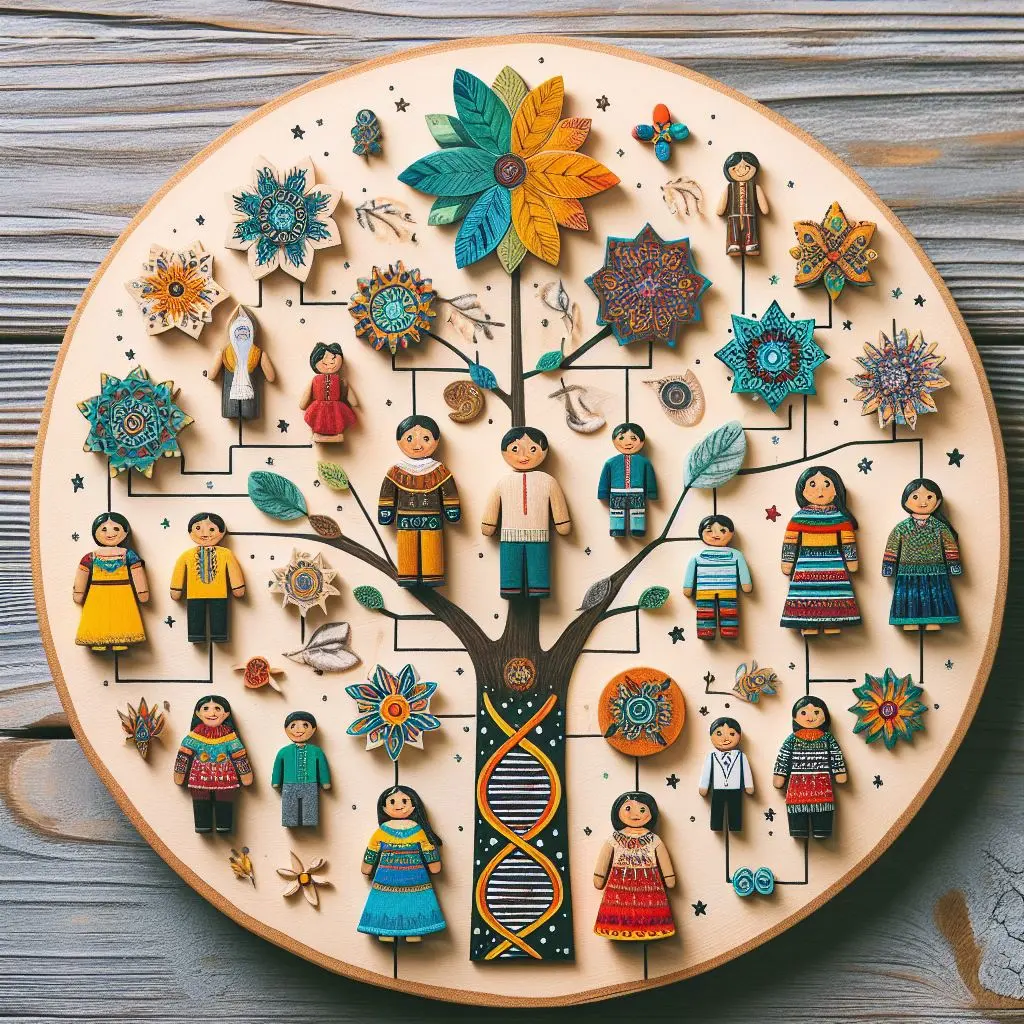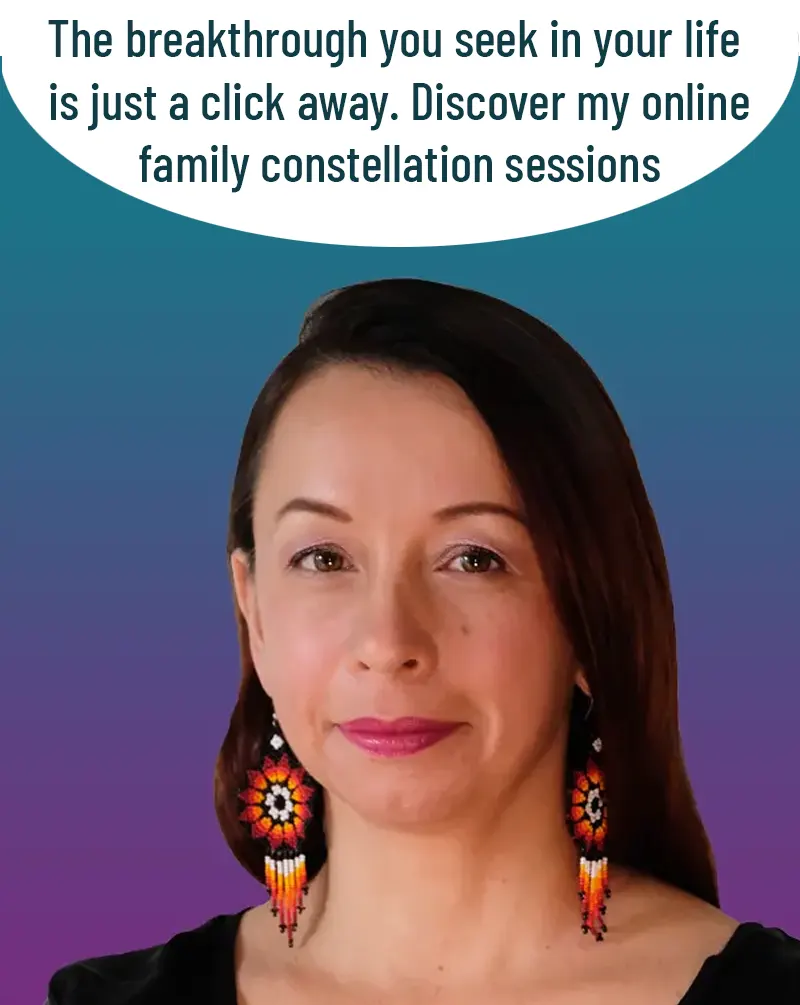Controlling is a Survival Mechanism
Published July 24, 2025

Table of Contents:
When Controlling is a Survival Mechanism: A Systemic Look at the Controlling Personality
Do you feel like everything has to depend on you?
Do you have a hard time relaxing, asking for help, or letting others make mistakes?
You probably don't call it "control."
You call it responsibility, foresight, efficiency. But when this part takes center stage, something inside wears out. And without realizing it, you live in constant tension, your body rigid and your mind racing, as if everything could fall apart if you're not in control.
🔥 THE PROBLEM: WHEN CONTROL TAKES OVER YOUR LIFE.
You weren't born controlling. Control is a learned strategy. A protective mechanism that is activated in the face of fear, uncertainty or carelessness. And although it was once necessary, over time it becomes an invisible prison.
Signs that you are living from your controlling side:
You find it hard to trust others. You prefer to do it yourself.
You plan too much. You are overwhelmed by the unexpected.
You need certainty. Improvisation generates anxiety.
You feel that if you don't watch out, something bad will happen.
You can't disconnect. There is always something to attend to.
Perfectionism dominates you, but it's never enough.
You have a hard time delegating. "No one does it like you do."
-Your body lives on alert. You sleep poorly. Your mind won't shut down.
**Sound familiar?
You are not alone. This part dwells in many people. And while it is not your enemy, it does need to be looked at with a new awareness. Because it's not about letting go of control, it's about understanding why you started doing it.
THE INVISIBLE ORIGIN OF CONTROL
Behind the need to control there is always an untold story. A childhood wound. An early experience where there was a lack of containment, security or presence. In that void, an unconscious promise arose:
"If I take charge, maybe they will see me."
"If everything is in order, mom doesn't get mad."
"If I make it perfect, Dad will love me."
"If I don't control, everything falls apart."
That control was your way of loving. A childlike love that did its best to protect you. So, you can't let go of it simply by willpower. You need to look tenderly at that part of you that held the unsustainable.
FAMILY CONSTELLATIONS AND INNER REORDERING
Family Constellations, developed by Bert Hellinger, allow you to see from the outside what has remained hidden within you: unconscious dynamics, family loyalties, unhealed wounds.
Through a constellation, you can:
See how your controlling part relates to your parents and your family system.
Understand what it protects, who it represents and what fear it hides.
Be grateful for its protective function, without identifying with it.
Let go of the weight of holding everything.
Recover your place as a daughter/son, as a partner, as a person.
✨ TWO REAL CASES: CONTROL IN ACTION.
🧩 Marta case: "If I don't control, I don't exist".
Mariann lived attentive to everyone. She supported her home, the family business, her partner. She felt indispensable, but deeply exhausted.
In her constellation, a clear image appeared: her controlling part turned to her alcoholic father, seeking recognition through effort.
🔁 By symbolically returning the provider role to her father, Martha was able to say:
"Dad, I am your daughter, not your breadwinner."
And to her controlling part:
"Thank you for protecting me. Today I can make room to trust."
🧩 Case Anne: "Controlling was my way of surviving."
From the age of 12, Anne organized her household finances so that her parents wouldn't waste money. As an adult, she continued to support them financially with anger and guilt.
In the constellation, her controlling part was between her and her parents. She was the bridge that kept the chaos in balance.
Looking at this dynamic, Ana could recognize:
"This was too much for a child."
"Today I no longer need to save my parents."
And as she took her place as a daughter, her body began to rest.
AN EPIGENETIC AND TRANSGENERATIONAL APPROACH
Epigenetics studies confirm that intense emotional experiences can leave imprints on gene expression. Authors such as Rachel Yehuda have shown how unresolved trauma is transmitted at the cellular level, affecting even future generations.
For her part, Anne Ancelin Schützenberger speaks of the "anniversary syndrome," where unresolved events of ancestors reappear on similar dates or symptoms. And in Hellinger's view, the need to control may be an invisible loyalty to someone in the system who also carried too much.
Psychologist Marianne Bentzen and therapist Mark Wolynn, author of "It Didn't Start with You," explain how inherited trauma shapes the way we think, feel and relate, until it is recognized and released.
🪷 LETTING GO OF CONTROL IS AN ACT OF LOVE.
It's not about letting go of being organized or efficient. It's about freeing yourself from the belief that it's all up to you.
When you understand the root of control, you can:
✅ Reclaim your life energy.
✅ Learn to trust (in others and in life).
✅ Let go of perfectionism as your only value.
✅ To feel pleasure, rest and presence again.
💡 What if this were the time to let go?
Maybe you've been functioning from control for years. But you are no longer alone. Your system can sort itself out. Your body can rest. Your soul can trust again.
Family Constellations do not seek to change you, but to put you back in your place, to reconnect you with your inner resources and to free you from the burdens that no longer belong to you.
📆 Ready to look at your story with new eyes?
Schedule your Family Constellation session at 🔗 www.alejandraleon.com
📚 Recommended bibliography:
Hellinger, Bert. "The Orders of Love."
Schützenberger, Anne Ancelin. "Alas, my ancestors."
Yehuda, Rachel. "Epigenetic mechanisms in PTSD."
Wolynn, Mark. "It Didn't Start with You."
Carey, Nessa. "The Epigenetics Revolution."
Bentzen, Marianne. "The Neuroaffective Picture Book."
Next: I'm Being Just Like My Mother
Previous: What kind of father did you have?



